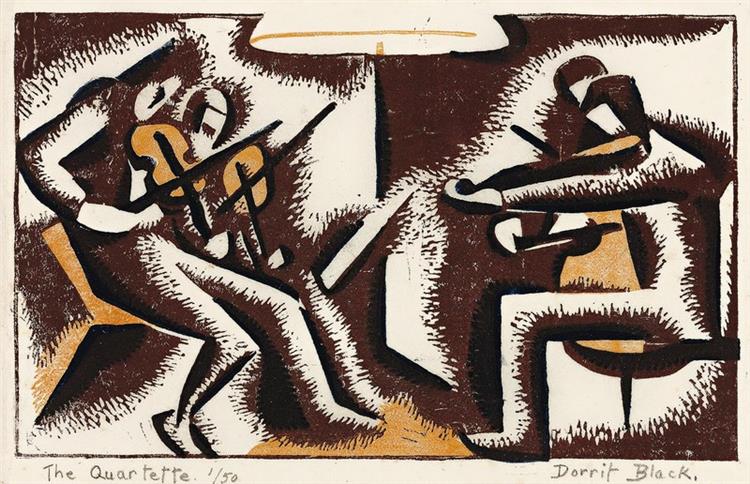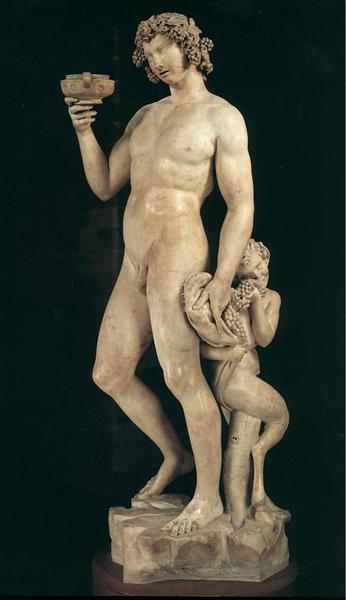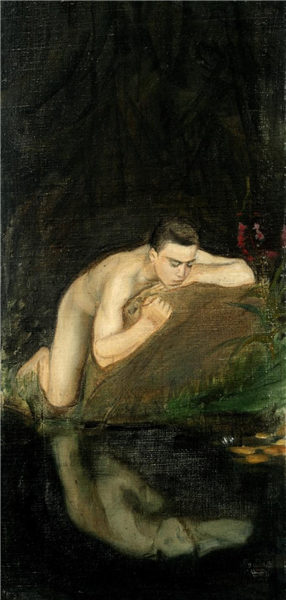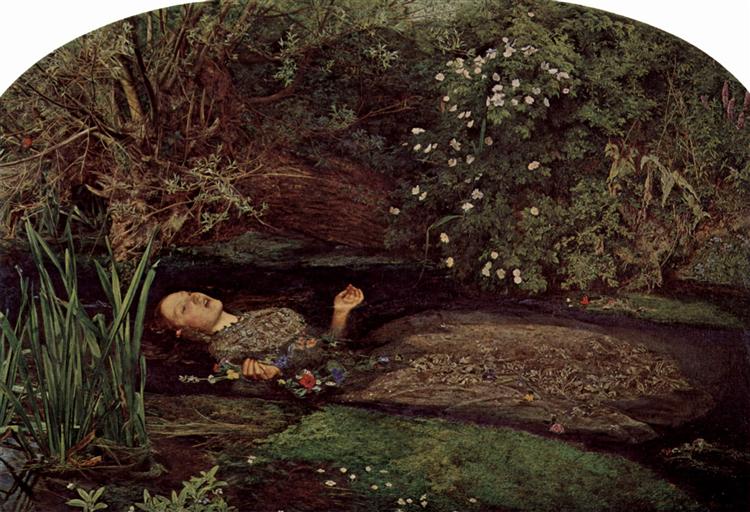Richibi’s Weblog
Just another WordPress.com weblog
Category: up my idiosyncrasies
August 15, 2023
how to listen to music if you don’t know your Beethoven from your Bach, XVIII – Rachmaninov
“Portrait of the composer Sergei Rachmaninov“
Konstantin Somov
______
though you probably still wouldn’t be able
to tell a prelude from a hole in the wall,
nor, admittedly, can I, unless indicated,
if you’ve listened to the pieces I’ve
recently presented, you’ve noted, even
merely sensed, really, that the preludes
of one composer don’t sound at all like
those of the others, Bach doesn’t sound
like Chopin, who doesn’t sound at all
like Debussy, the first step in telling
your Beethoven from your Bach, as
promised in my title
you might not even be able to tell which
is which as you’re listening, but you can
tell they’re different, you do the same
thing telling your Monet from your
Renoir
Rachmaninov also wrote, like Chopin,
and Debussy, 24 preludes, and, like
Chopin, in every key, major and minor
but spread out through three publications,
Opus 3, no. 2, from 1892, comprising of
only one prelude, but a scorcher, The
a second set, Opus 23, consists of ten,
mostly iconic, pieces, you’ve heard
them somewhere before, therefore
iconic
the final set comes out in 1910,
Opus 32, with thirteen preludes,
for a total of 24
you’ll marvel, even Marilyn Monroe
famously did
enjoy
R ! chard
April 26, 2023
how to listen to music if you don’t know your Beethoven from your Bach, XII – on rhapsodies
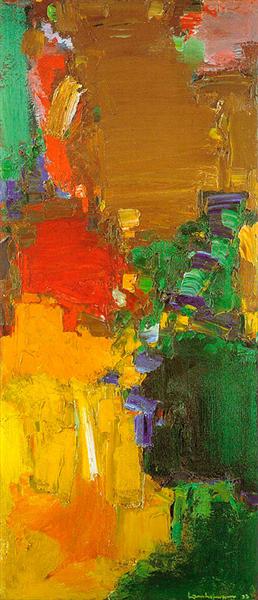
“Rhapsody“ (1958)
_____
if, in my last instalment, I compared iconic
funeral marches, let me do the same for
a couple of iconic rhapsodies, another
musical form that came and went, that’s
come and gone, but not forgotten
what’s a rhapsody
as far as I can make out, it’s much the
same as a fantasia, if you can remember
what a fantasia is, a free form composition,
but with a Romantic, which is to say a
heartfelt, twist, more pathos, less
technical wizardry
Gershwin wrote his Rhapsody in Blue
in 1924, you can hear New York, Times
Square, Broadway, from the first wail
of the languid horn
Rachmaninov’s Rhapsody on a Theme
of Paganini, written in 1934, ten years
later, gives you, however, Vienna, its
Romantic Period, the traditions of,
a century earlier, Beethoven, Schubert
Rachmaninov is personal, introspective,
tragic, Gershwin is extroverted, social,
fun
Rachmaninov looked back to his
European, Old World, traditions,
Gershwin augurs an entirely new
voice
listen, you can hear it
enjoy
R ! chard
January 13, 2023
how to listen to music if you don’t know your Beethoven from your Bach

“Music“(1895)
Gustav Klimt
________
how to listen to music if you don’t know your
Beethoven from your Bach
the first thing to do, I would suggest, is to stop
and listen, spend the time with the work you’re
listening to, it’s no different than spending half
an hour with a friend
but you have to be there, listen, as you would
with a friend, no cell phones
the next thing I suggest is to compare, put your
work up against a different composer, a
different interpretation, a different version of
the piece you have on hand
I learned this as I learned to tell one artwork
from another, while I turned European art
museums into personal art history classes,
spending hours comparing one painting
with another, doing so chronologically,
century after century, imbibing thereby the
history of Western art
it’s not necessary to know who you might
even be listening to, just listen, hear,
later the names will come
here’s some Mozart, here’s some Prokofiev,
for instance, you’ll tell the difference
instinctively, forget about the composers,
just surrender to the magic
here’s a poem which says more or less
the same thing
How to Read a Poem: Beginner’s Manual
First, forget everything you have learned,
that poetry is difficult,
that it cannot be appreciated by the likes of you,
with your high school equivalency diploma,
your steel-tipped boots,
or your white-collar misunderstandings.
Do not assume meanings hidden from you:
the best poems mean what they say and say it.
To read poetry requires only courage
enough to leap from the edge
and trust.
Treat a poem like dirt,
humus rich and heavy from the garden.
Later it will become the fat tomatoes
and golden squash piled high upon your kitchen table.
Poetry demands surrender,
language saying what is true,
doing holy things to the ordinary.
Read just one poem a day.
Someday a book of poems may open in your hands
like a daffodil offering its cup
to the sun.
When you can name five poets
without including Bob Dylan,
when you exceed your quota
and don’t even notice,
close this manual.
Congratulations.
You can now read poetry.
Pamela Spiro Wagner
music is also like that
R ! chard
